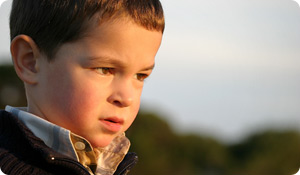
Does your child seem overly anxious or depressed? If so, these are two serious conditions that are important to take seriously.
Anxiety and depression symptoms often go hand in hand in children and adolescents. Yet when it comes to addressing these issues in young patients, the latest research suggests that rather than treating both problems as one illness, it's best to consider them as two distinct diagnoses that may just happen to co-exist.
Childhood Anxiety and Childhood Depression
While it can be perfectly normal for your child to be worried or sad once in a while, when these moods continue for an extended period of time or seem extreme, it could indicate that she needs professional help for childhood anxiety, depression, or both.
In fact, a study conducted by researchers at the Langeveld Institute for the Study of Education and Development in Childhood and Adolescence at Utrecht University reveals that childhood anxiety and childhood depression should be classified separately in order to treat each issue most effectively.
To this end, in an article published in the Journal of Child Psychology and Psychiatry in October of 2009, the researchers recommended that each condition have its own category in the upcoming Diagnostic and Statistical Manual of Mental Disorders, Fifth Edition (DSM-V), which is planned to be released in 2012. In the current DSM-IV, which is the latest reference book for mental health providers, both disorders do have their own listings. However, there's been some consideration of combining the two in the next publication, which is what spurred scientists to take a closer look.
Two Distinct Diagnoses
To conclude that the two diagnoses are best left separate, the researchers studied groups of adolescents who ranged in age from 10 to 20 years old. The adolescents were defined as either at-risk for anxiety problems or not at risk to determine the typical course that childhood anxiety and childhood depression take and to see how the symptoms present themselves.
These adolescents were followed for a period of five years, which allowed researchers to identify some interesting patterns and to gain a better understanding of the progression of childhood anxiety and childhood depression. Upon completion of the research efforts, scientists decided that childhood anxiety and childhood depression are indeed separate conditions that progress on a parallel track and can influence each other but are not the same issue.
Seek Effective Treatment
This means that if your child exhibits signs of childhood anxiety and childhood depression simultaneously, it's important to find a mental health provider who understands each of these conditions and can address each one both appropriately to help your child feel better quickly.
Sources:
Journal of Child Psychology and Psychiatry
http://www3.interscience.wiley.com/journal/122473904/abstract





